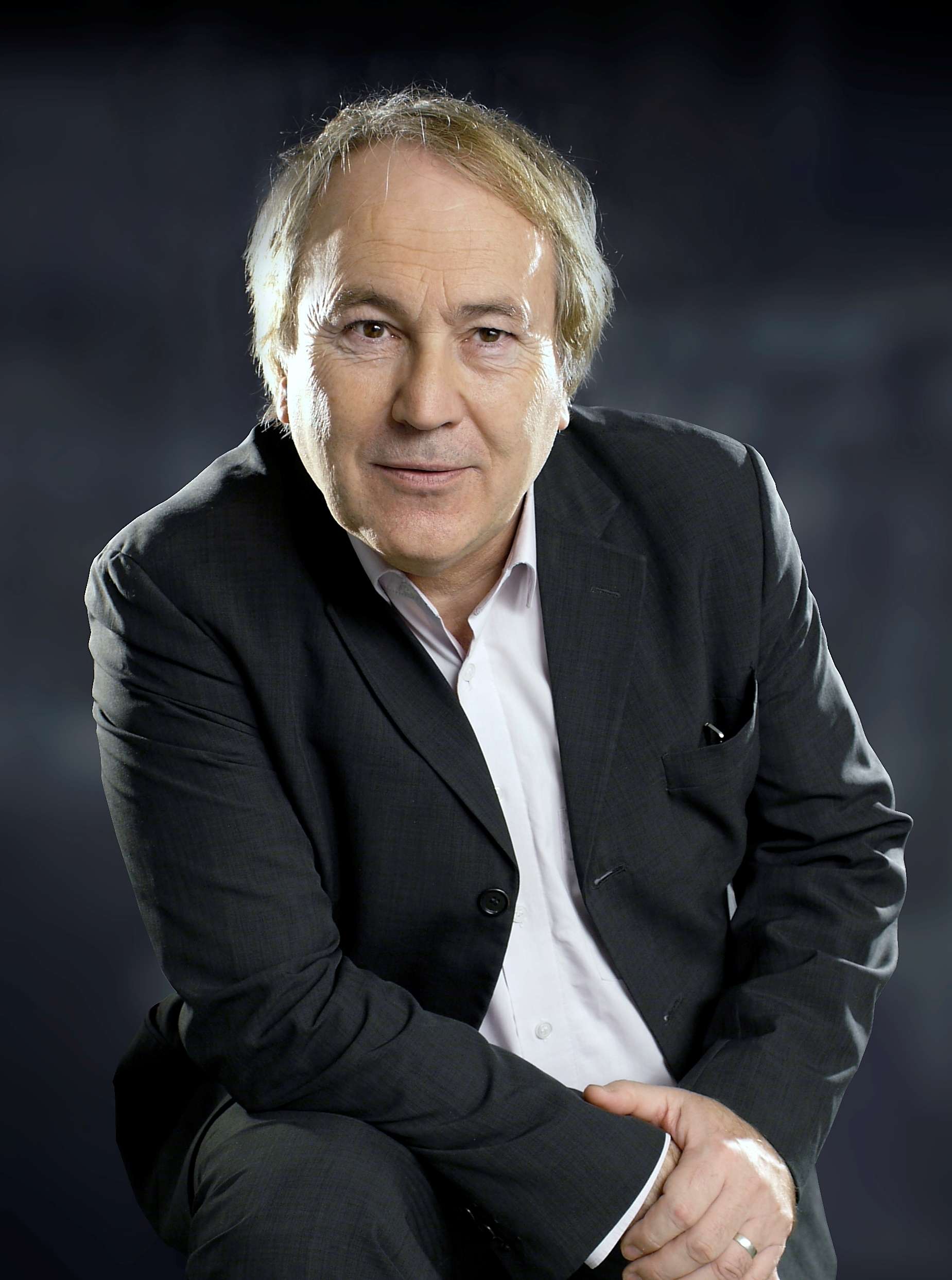|
Back
Choral Cornucopia Toronto
The Carlu Concert Hall
03/11/2012 -
Johann Sebastian Bach: Motets “Singet dem Herren ein neues Lied”, BWV 225, & “Komm, Jesu, komm”, BWV 229 (*)
György Ligeti: Lux Aeterna (*)
Paul Frehner: Corpus (*)
Gilles Tremblay: L’Espace du Cœur (+)
Frank Martin: Mass for Double Choir: Kyrie (* +)
Krzysztof Pendercki: Sanctus – Benedictus – Agnus Dei (* +)
Gustav Mahler: Ich bin der Welt adhanden gekommen (arr. Clytus Gottwald) (* +)
Kammerchor Stuttgart, Frieder Bernius (conductor) (*), Choir 21, David Fallis (conductor) (+)
TorQ Percussion Quartet: Richard Burrows, Adam Campbell, Jamie Drake, Daniel Morphy 
F. Bernius(Courtesy of Soundstreams)
This wide-ranging program, with works dating from the 1720s to 2012, proved an impressive showcase for the two participating choirs. Soundstreams, now in its 29th year of operation under founder Lawrence Cherney, has long focused on choral music, bringing many top European choirs to Canada, and presenting Canadian performers in Europe and Asia. The musical focus is usually on recent if not brand new music. Soundstreams’s ongoing relationship with the Stuttgart Chamber Choir was established many years ago.
The venue for the concert was the Carlu, the city’s art deco treasure with an interesting past. It occupies the 7th (top) floor of a grand department store opened in 1931. As the Eaton Auditorium it functioned for decades as the city’s main recital hall (capacity 1200) and was the favourite venue of Glenn Gould for both performing and recording - in fact at one point Gould mused about purchasing the place (probably one of his dry jokes). The store closed in the 1970s and most of the building became law courts. After a 26-year closure, during which a legal battle was fought over the owner’s duty to maintain a heritage property, the auditorium and its glamourous anterooms reopened in 2003 as the Carlu, renamed for its designer, Jacques Carlu.
The visiting choir was paired with Choir 21, a 22-member ensemble founded by Soundstreams to focus on 21st century repertoire. Its director is David Fallis, founding director of the Toronto Consort and Music Director of Opera Atelier. He is closely associated with music of centuries past, but is clearly not to be confined to any era.
The program started with the 29-member Stuttgart choir showing us their amazingly meticulous approach to J. S. Bach with their performances of the two motets. The concert hall is a wide, square space that favours clarity over resonance and at first I wished for a greater intensity of sound. (Soundstreams regular venue, Koerner Hall, is more ideal in this respect.) Still, one’s ears quickly adjusted; the venue's acoustic certainly emphasizes the transparency of the choir’s sound.
The title of the first motet refers to singing a new song (ein neues Lied), which is exactly what the rest of the program was about.
The Stuttgart choir's qualities were further displayed in the next piece, György Ligeti’s Lux Aeterna from 1966, famous for its use by Stanley Kubrick in 2001: A Space Odyssey. Its micropolyphony certainly takes the audience into an extra-terrestrial soundworld.
A distinct contrast to this was Frank Martin’s Kyrie from his Mass for Double Choir of 1922; after the mystic tension of the Ligeti, this piece has the fresh simplicity of an alpine stream.
Yet another approach to traditional Latin settings was reflected in Krzysztof Penderecki’s Sanctus (2009) and Benedictus (2002); sung by the women of both choirs, the pieces have a simple, folkish sound. The Agnus Dei (from 1981) for mixed choir builds to a grainy climax.
The world premiere on the program was Paul Frehner’s Corpus for choir and percussion - in fact lots of percussion, in the form of the Toronto-based ensemble TorQ with a battery of instruments that occupied most of the stage. The core of the 23-minute piece is a setting of the 14th-century hymn Dies irae - “Day of Wrath” - and very wrathful it is. It opens with a choir member reciting excerpts from UK poet Michael Symmons Roberts’ Corpus which envisions the author’s own violent death, while the choir and percussion launch the Dies irae. The choral part gives way to a lengthy section for percussion alone - and things get very tumultuous. At the end are some rather more peaceful passages (in Hebrew) from the books of Psalms and Ecclesiates. It all ends abruptly. It’s quite the attention-getting work, although more than one hearing would be needed to see how it all hangs together.
Gilles Tremblay’s L’Espace du Cœur (from 1997) is yet another treatment of an antique text (a love poem by Guillaume de Machaut, 14th century) interwoven with a modern love poem by Gaston Miron. It’s a playful piece punctuated with gongs and cymbals. The opening line establishes the lighthearted tone: “Mon cœur, ma sœur, ma douce amour”; the poets’ names are also entwined with the poetic lines.
The dazzlingly beautiful arrangement by Clytus Gottwald of Gustav Mahler’s “Ich bin der Welt adhanden gekommen” ended the program. Gottwald made the arrangement (one of many) for his choir, the Schola Cantorum of Stuttgart, in 1984. It is for 16 separate voice parts and encompasses a five-octave range. Even with all this multi-layering the essential thread of this great song is maintained. Truly a transcendental finish to a concert that presented the audience with such a rich array of music and word-setting.
Michael Johnson
|